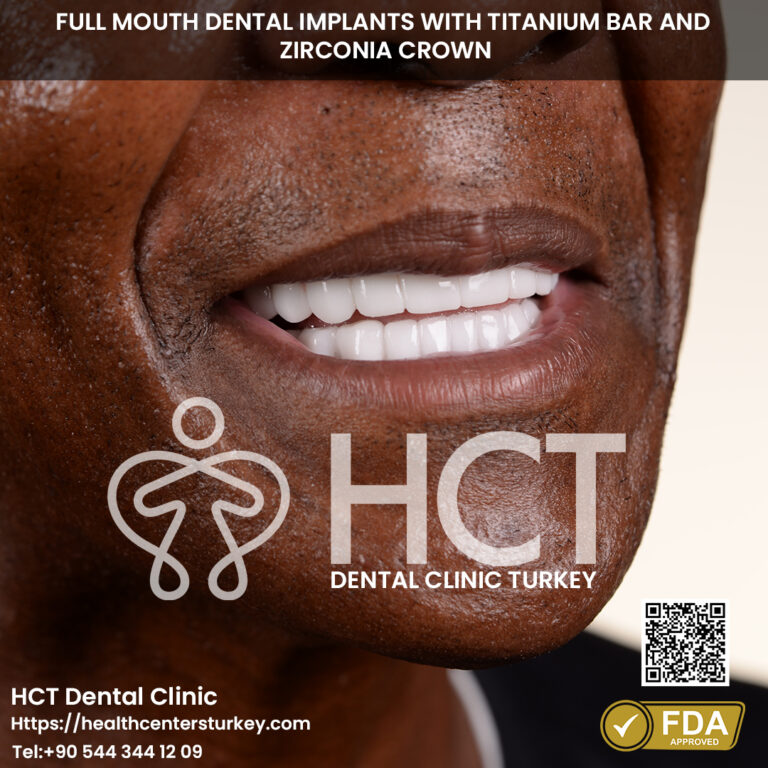Full-Service Dental Assessments in Antalya
Full-Service Dental Assessments in Antalya
Blog Article
Expert Dental Teams Offering Veneers and More in Turkey
Dental implants have become a preferred answer for these looking to replace missing teeth. Understanding how these implants can affect adjacent teeth is crucial for anybody considering this procedure, in addition to for dentists and specialists involved in dental care.

One significant facet is that dental implants are designed to be anchored into the jawbone, which means they are unbiased of adjacent teeth. Unlike dental bridges, which often require the alteration of neighboring teeth, implants can fill the hole with out compromising the health or structure of these surrounding teeth.
This independence helps preserve the integrity of adjacent teeth. When a tooth is misplaced, there could be a natural tendency for neighboring teeth to tilt or shift into the empty area. Such movement can lead to misalignment, which might affect chew and general oral health. By placing an implant, you effectively prevent this potential shift, promoting higher alignment in the long term.
Exceptional Oral Care Services Offered to International Patients in Turkey
Additionally, dental implants assist maintain bone density within the jaw. A natural tooth root offers stimulation to the encircling bone, maintaining it wholesome and powerful. When a tooth is missing, the bone can start to deteriorate as a result of lack of stimulation. With a dental implant mimicking a natural root, bone loss may be minimized, which not directly benefits adjacent teeth by preserving the overall structure of the dental arch.
While dental implants are advantageous, improper placement can influence neighboring teeth. If an implant is positioned too close to a different tooth, it may exert undue strain on that tooth, leading to discomfort or potential damage. Proper planning and imaging methods are essential for avoiding such points.
Ensure A Perfect Smile through Affordable Treatments in Turkey
Moreover, maintaining good oral hygiene is essential after receiving an implant. If not properly cleaned, surrounding teeth could become vulnerable to dental points such as decay or gum disease. This underscores the significance of diligent oral care following the procedure to ensure each implants and adjacent teeth remain wholesome.
Regular dental check-ups are additionally vital for monitoring the health of surrounding teeth. Dentists can determine any shifts or potential problems early, allowing for timely interventions. This proactive method ensures that each the implant and adjacent teeth can coexist without problems.
Get Cost-Effective Teeth Work that Meet Your Needs in Turkey
Another consideration is the influence of implants on chunk force. When a single tooth is missing, the load of chewing might shift to adjacent teeth, doubtlessly leading to wear or pressure. Implants restore correct bite dynamics by redistributing forces in the mouth, which may defend surrounding teeth from undue stress.
Some patients might increase issues about the appearance of dental implants. Well-placed implants can blend seamlessly with present teeth, bettering total aesthetics. In contrast, failing to replace a missing tooth can lead to aesthetic points, together with collapsing of facial structure and changes in smile dynamics.
It's also worth discussing the psychological features of dental health. Experiencing tooth loss can adversely affect one’s vanity and willingness to have interaction socially. By restoring your smile with implants, you'll be able to positively affect not solely your oral health but additionally your emotional well-being.
Long-term success of dental implants usually hinges on various factors, including the patient's health, maintenance habits, and the quality of the initial procedure. If adjacent teeth are healthy and properly cared for, the chances are they'll proceed to thrive alongside the implants.
Cost-Effective Dental Care in Turkey targeting international patients
In conclusion, dental implants play a vital role in not just restoring individual smiles, but in preserving the health and structure of adjacent teeth. By preventing shifting, More Bonuses maintaining bone density, and redistributing bite forces, implants can make positive that surrounding teeth remain in optimal condition. Proper placement, hygiene, and common dental visits can additional improve the benefits of dental implants, leading to a healthier, more confident smile for years to return.
- Dental implants might help maintain the alignment of adjacent teeth by providing a stable anchor, preventing adjacent teeth from shifting into the hole left by a missing tooth.
- The presence of an implant could stimulate bone growth within the jaw, serving to to protect the general structure and integrity of the adjacent teeth.
- Unlike traditional bridges, implants do not require alteration of surrounding teeth, thus preserving their strength and anatomy.
- Implants can enhance the distribution of chunk forces evenly throughout the dental arch, decreasing the stress on neighboring teeth during chewing.
- A well-integrated dental implant can lower the risk of bone loss within the space surrounding adjacent teeth, contributing to their long-term health and stability.
- The aesthetics of adjacent teeth could be improved because of the support provided by implants, which can result in better overall beauty outcomes.
- With correct placement, dental implants can prevent gum recession around adjacent teeth by sustaining sufficient dental architecture.
- Implants can help mitigate the risks of periodontal disease in close by teeth by selling healthy gum tissue and providing a washer-friendly floor.
- Long-term success of dental implants can lead to improved oral hygiene routines, which in turn advantages the health of surrounding teeth.
- The improved practical ability of an implant can encourage sufferers to chew more successfully, thus growing saliva production and aiding within the safety of adjacent dental tissues.undefinedHow do dental implants affect adjacent teeth?
What are dental implants and how do they work together with adjacent teeth?undefinedDental implants are artificial tooth roots that are surgically positioned into the jawbone. They present a stable basis for replacement teeth while ensuring minimal disruption to adjacent teeth, preserving their integrity and alignment. High-Standard Dental Options aimed at Tourists in Turkey.
Optimize Your Dental Treatment with Skilled Professionals in Turkey
Can dental implants cause problems for close by natural teeth?undefinedGenerally, dental implants don't harm adjacent natural teeth. However, if the implant just isn't positioned correctly or if there’s insufficient oral hygiene, it might lead to issues similar to adjacent tooth decay or gum disease.

Will getting a dental implant change the way in which my adjacent teeth feel?undefinedMost patients report no change within the sensation of adjacent teeth after implant placement. However, it could take a while to regulate to the presence of the implant, just like how one might adapt to other dental restorations.
Can dental implants help protect the health of adjacent teeth?undefinedYes, dental implants may help preserve the health of adjacent teeth by stopping bone loss that can occur after tooth loss. This preservation supports the alignment of close by teeth, lowering the danger of shifting or misalignment.
Exceptional Teeth Facilities for Tourists in Turkey
Do I want to switch adjacent teeth when getting an implant?undefinedTypically, adjacent teeth do not need alteration when see here placing an implant. This is amongst the advantages of dental implants over conventional bridges, which regularly require reshaping adjacent teeth for help.
How does the healing process of an implant affect close by teeth?undefinedThe healing course of entails osseointegration, where the implant fuses with the jawbone. During this time, adjacent teeth remain unaffected and retain their operate, though it’s essential to observe post-operative care recommendations. Upgrade Your Smile with Dental Implants in Turkey.
Complete Dental Services for Your Dream Smile
Can dental implants lead to bone loss round adjacent teeth?undefinedIf dental implants are placed correctly and cared for adequately, they should not lead to bone loss round adjacent teeth. In fact, they may help stimulate bone progress, combating the natural bone loss that often follows tooth extraction.
What precautions ought to I take to protect adjacent teeth after getting an implant?undefinedRoutine dental hygiene, together with brushing and flossing, along with common dental check-ups, is crucial. Avoiding exhausting foods and following your dentist’s aftercare directions will also shield both the implant and adjacent teeth.
Is it widespread for adjacent teeth to shift after an implant is placed?undefinedIt's not typical for adjacent teeth to shift after an implant placement, particularly when the implant is placed accurately and maintained properly. If there’s any motion, it may be due to other underlying points that should be evaluated by a dental professional. Report this page